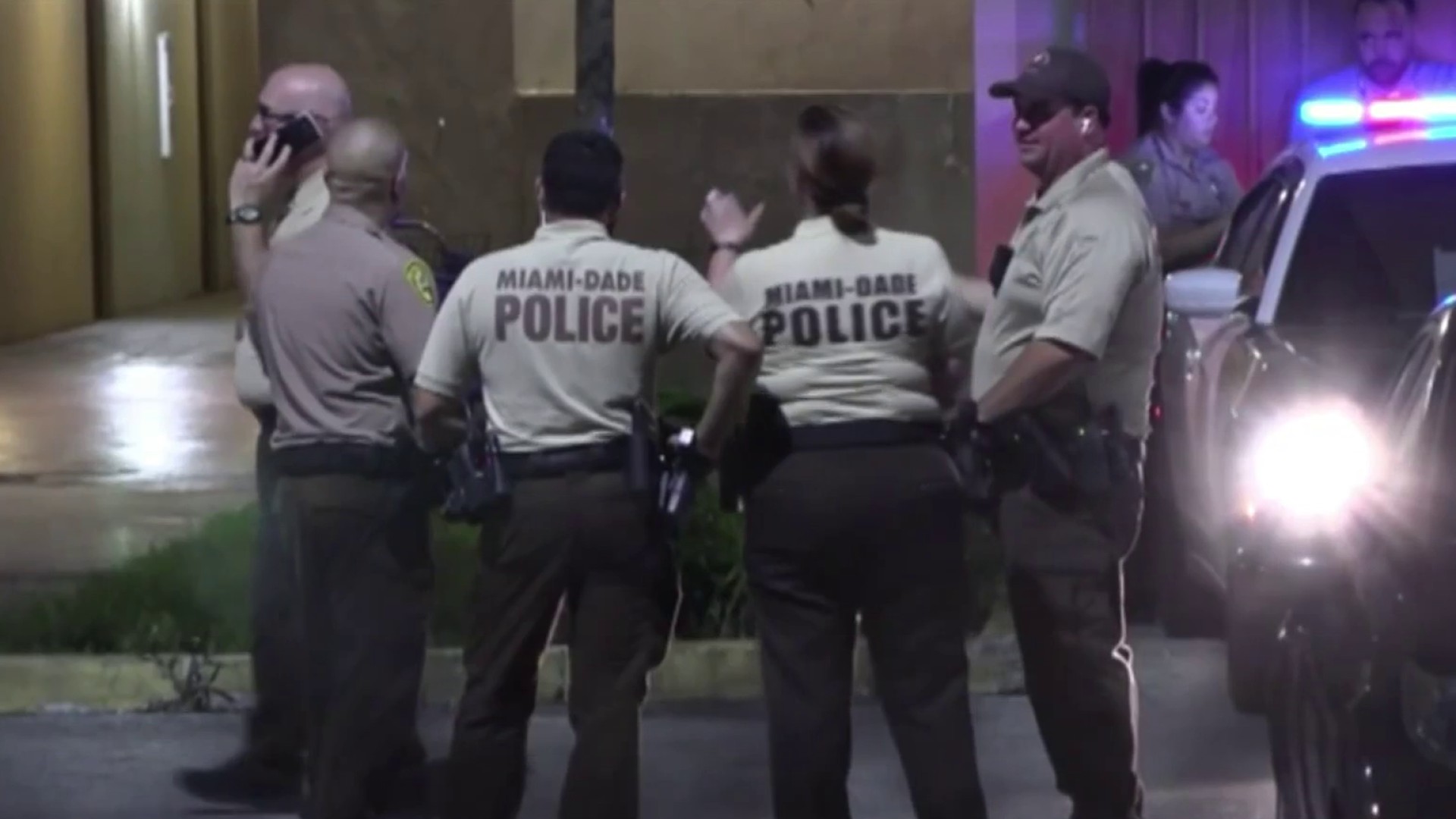Unapproved work was done without city permits to the air conditioning and back-up generator systems at the Hollywood Hills nursing home where several residents died when power to the air conditioning system failed during Hurricane Irma, a Hollywood city spokeswoman told the NBC 6 Investigators on Friday.
After the first deaths on Sept. 13, city building officials say they discovered a temporary generator had been placed outside the facility and wired into the building without the necessary city permits.
The city also says officials discovered the air conditioning cooling tower was replaced without a permit — also a violation of the city’s building code.
City spokeswoman Raelin Storey said citations are being issued to the owner of the property, Hollywood Property Investments LLC. According to state officials and corporate records the owner is affiliated with the nursing home owner, the Rehabilitation Center at Hollywood Hills LLC, through Larkin Community Hospital.
Eleven residents of the nursing home have died, some with body temperatures approaching 110 degrees, since the home was evacuated on Sept. 13, more than 63 hours after a transformer feeding the building cooling tower failed.
Contractors for the property owner last year applied for city permits for two projects: a $42,000 effort to replace a back-up generator; and a $55,620 plan to replace the cooling tower.
The cooling tower permit was not issued, Storey said, because the applicant failed to address concerns raised in April 2016 by city reviewers. City records show those issues involved obtaining approval from the Department of Environmental Protection and assuring the new chiller would meet building codes regarding water supply.
Local
“They never answered our questions,” she said. “They never responded.”
Same for the application to replace the home’s back-up generator.
The building department “asked for (more) information” after plans for the generator were submitted in August 2016, but the information was “never provided.”
Among the city’s concerns: the county had not reviewed plans for removing the diesel tank that fueled the old generator at the home, according to city building department records.
The city claims the owners replaced the cooling tower anyway — without getting a city permit.
Installation of the new proposed generator, however, was not completed.
Instead, a temporary generator was wheeled onto the property sometime before the storm struck on the afternoon of Sunday, Sept. 10 — but that, too, would have required a permit that was not obtained, Storey said.
A nursing home official, who declined to be quoted by name, tells NBC 6 the temporary generator had been on the property since April 2013 – before it was even purchased by the current owners.
And, the official added, the owner relied on a contractor to get the proper approvals for the cooling tower replacement and did not know the permit had not been approved.
The nursing home has said the generator in place during the storm would have, as required by law, powered life safety systems -- such as nurse call buttons, emergency exit lights, fire alarms and smoke detectors. It would not have powered the cooling tower, which required higher voltage.
On August 10, 2017, a new plan to install a back-up generator was submitted to the city, and the review of those plans was “in process,” Storey said.
The permit applications do not say whether the proposed new generator would have powered the new cooling tower, in addition to the life safety systems.
Even if the new generator had been installed prior to the outage this month, the home official said, it would not under current plans had been connected to the chiller – so the lack of central air conditioning would have been an issue regardless.
In a timeline released last week, the facility said the current cooling tower was fed only by a transformer, which failed during the storm. Another transformer that fed the rest of the facility was intact, so the existing temporary back-up generator was not needed.
Current law does not require homes to have air conditioning on back-up generators.
But three days after the first deaths of residents, Gov. Rick Scott issued emergency rules that would require all 685 nursing homes and more than 3,000 assisted living facilities to back up air conditioners with generators.
They would have to maintain temperatures at or below 80 degrees for at least four days after a power outage — at least in areas of homes where patients would be cared for during such an emergency.
The governor gave the industry until mid-November to complete the work, but at a meeting of hundreds of home administrators in Tallahassee Friday, it was clear that deadline would be impossible to meet statewide.
“We’re going to be working aggressively across the state to make sure that every facility is fully prepared to comply with these new requirements,” said Justn Senior, secretary of the Agency for Health Care Administration.
Asked about the costs — potentially hundreds of millions of dollars statewide to put all homes’ air conditioning generator — Senior said, “We believe very strongly the cost of not complying with this rule is greater than the cost of compliance… The cost of not complying is the potential for lost lives.”
Legislators at the gathering Friday predicted the mandatory generator rule will be made a state law by next year’s session, but they also doubted all homes could comply by the governor’s current Nov. 15 deadline.



